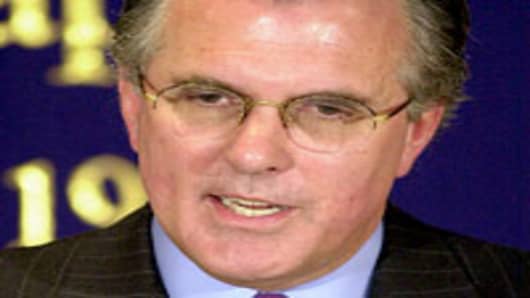"I think that the first quarter of 2009 was equally bad or maybe slightly worse than the fourth quarter of 2008," Fisher also said.
"There's little confidence in the economy right now," said Fisher. "We won't get into positive growth until 2010."
Fisher also said that the U.S. was ahead of the curve in addressing its economic woes and that he was "fully supportive of the unorthodox tools the Fed has used to used to help the economy."
The global nature of the current downturn has prevented some of the vast U.S. monetary and fiscal stimulus from taking hold so far, Fisher said.
"We've certainly been ahead of the curve, and you see other central banks now follow us.
But the global economic situation has imploded ... I think there's an overall bad mood in terms of the world at large," he said. "There's an enormous amount of stimulus in the economy, but there's just deep concern. There's a lot of fog out there, and they don't know if it leads into a box canyon or to a new bridge in the sunlight. And time will tell."
Fisher is not a voter on the Federal Open Market Committee in 2009, but dissented against FOMC decisions four times in 2008 to make a stand against inflation, which was rising rapidly at the time.
In hindsight, given the subsequent collapse in price pressures, those decisions were not mistakes, Fisher said. He added that he has been fully supportive of the Fed's unorthodox tools to assist with credit market functioning.


